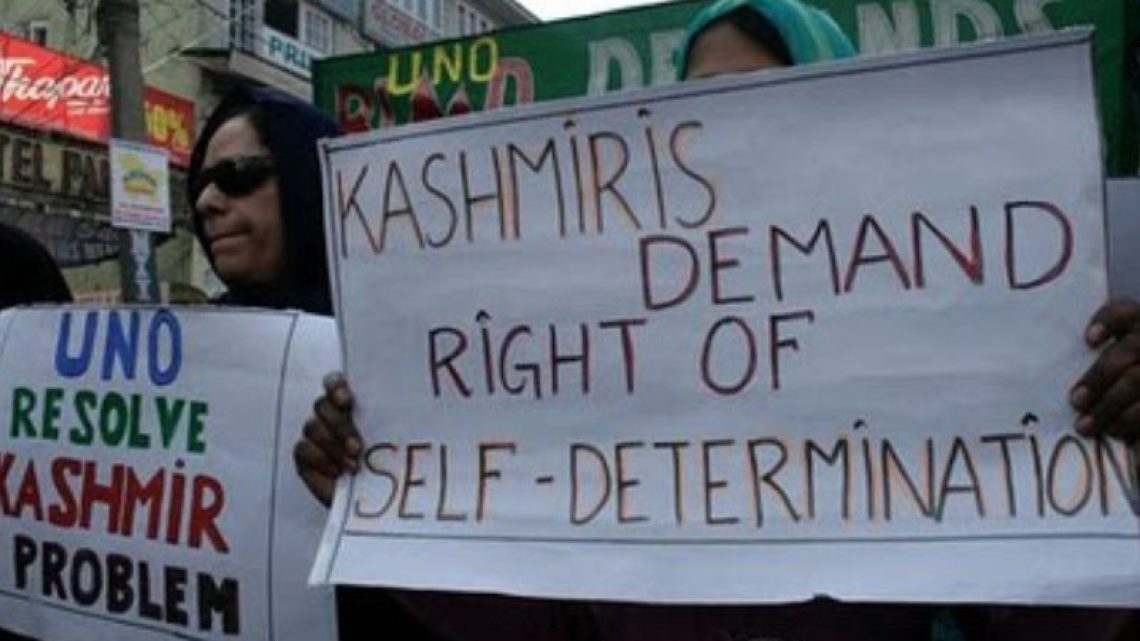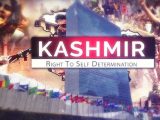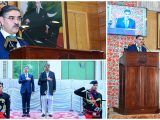
Unresolved Kashmir Dispute: APHC Plea for UN Intervention on Right to Self-Determination Day
January 5, 2024In a collective plea, leaders of the All Parties Hurriyat Conference (APHC) have urged the United Nations (UN) to fulfill its legal and moral obligations by aiding in the implementation of the historic resolution dated 5th January 1949. This resolution granted the people of Kashmir the right to self-determination, a right that remains elusive despite UN resolutions, wars, and bilateral agreements between India and Pakistan.
APHC leader Ghulam Muhammad Khan Sopori highlighted the persistent nature of the Kashmir dispute, emphasizing that even after numerous UN resolutions, wars, and agreements between India and Pakistan, a resolution remains elusive. Sopori called upon the international community to intervene, drawing attention to the egregious human rights violations committed by the Indian Army in the Indian Illegally Occupied Jammu and Kashmir (IIOJK).
Bilal Ahmed Siddiqui, another APHC leader currently incarcerated, expressed the frustration of the people of Jammu and Kashmir, who have been waiting for 75 years for the UN to act upon its resolution granting self-determination.
APHC leaders Zamrooda Habib, Yasmeen Raja, and Farida Behanji emphasized that the 5th January 1949 resolution established self-determination as the governing principle for resolving the dispute, seen as a peaceful and democratic formula in the modern world.
Muhammad Yousuf Naqash underscored the rejection of any alternative or secondary options by Kashmiris, asserting that only complete freedom in accordance with UN resolutions is acceptable. Other Hurriyat leaders, Maulana Musaib Nadvi and Israr Ahmad, reminded the UN of its responsibility in settling the dispute and highlighted the increased atrocities in IIOJK since August 5, 2019, when India abrogated the special status of Kashmir.
Despite joint statements from leaders like Advocate Muzammil, Hakeem Abdul Rasheed, and others, the World Body has been unable to implement its resolution for seven decades, with Indian atrocities persisting in occupied Kashmir.
Expressing concern over the deteriorating situation, APHC leaders Fayaz Hussain Jafari and Syed Sabte Shabbir Qummi stressed that Jammu and Kashmir remains on the UN agenda as an unresolved dispute. They raised alarms over the potential escalation to a world war due to the ongoing genocide and violations of international laws committed by Indian forces.
DFP spokesman Advocate Arshad Iqbal urged the UN to play a crucial role in resolving the Kashmir dispute and putting an end to human rights violations. Referring to the volatile situation in IIOJK, he emphasized the urgent need for international intervention.
The Jammu and Kashmir Ittehad-ul-Muslimeen spokesman lamented the criminal silence of international organizations, expressing the unfortunate reality that Kashmir and Palestine, two Muslim-majority states, continue to witness the shedding of innocent Muslim blood.
Shafiqur Rehman of the Jammu and Kashmir National Front called the UN-proposed road-map the most feasible solution and urged the organization to actively contribute to the implementation of the 5th January 1949 resolution, signaling hope for a peaceful resolution to the longstanding Kashmir dispute.

